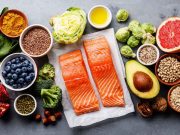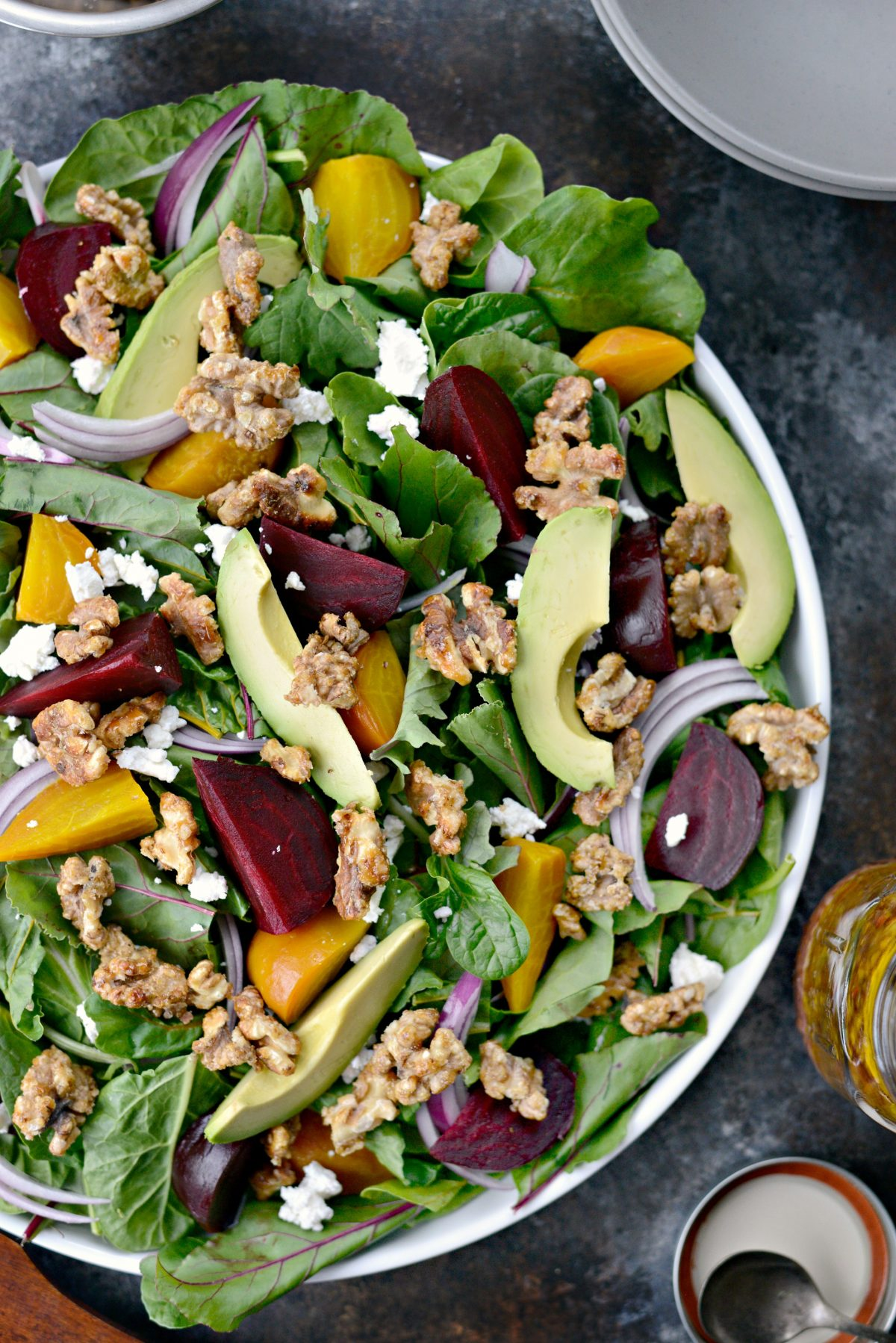It’s everywhere, all this talk about “inflammation”. So what does it all mean? Inflammation is the body’s natural immune response to sickness. Fevers, for example, can be good. It’s your body’s natural response to raising the temperature to kill off a virus. But too much inflammation can be very concerning when it comes to overall health.
We are told now, by science, that inflammation is the root of most disease…an increased risk of heart disease, cancer, diabetes, Alzheimer’s, along with tooth decay, obesity, ADD/ADHD, insomnia, hair loss, aging, and overall weakening of the bones. But what can we really do to fix any of this? Diet and exercise is a big piece of the puzzle we CAN control.
Here are a few key components to fighting inflammation every day:
*Limit foods that have corn sweetener, corn syrup, dextrose, malt syrup, glucose, fructose, lactose, maltose as ingredients (children are hugely affected).
*Eliminate processed foods.
*Consume low fructose fruit like berries, kiwi, grapefruit.
*Learn how to read food labels. Food labels list ingredients in descending order. The higher sugars appear in the ingredient list, the more the product contains.
*Sugar… our biggest source of inflammation…
Let’s talk about sugar. Sugar is made of two components: fructose and glucose
WHY is FRUCTOSE bad? Fructose is the issue in sugar sources. “Fruit sugar”, as it can be called, deemed healthy, “natural” but so is arsenic and petroleum. Fructose is low on the Glycemic Index because it cannot be metabolized. It never signals the brain that we have had, enough.
If we ended sweetened liquids, we would be hugely ahead of the crisis.
But……What about fruit? Fruit has fiber present. Fruit juice is a concentrated sugar source. Eat your whole fruits!
But what happens when we DO eat fructose? Your body processes fructose differently. Fructose is broken down in the liver and doesn’t provoke any “full feeling” (empty calories). Glucose starts to break down in the stomach and requires the release of insulin into the bloodstream to be metabolized completely. It messes with appetite hormone, leptin, not used as energy, causing us to eat more. It wreaks havoc on our liver (fatty liver disease) and “microbiome” A.K.A. gut health. It turns into fat.
Let’s look at fructose by % and what is the worst (to best) form of sugar for us:
*Agave 90% *just because it is “natural” doesn’t mean you should eat it! SO high. Leave it on the shelf.
*HFCS (high fructose corn syrup) 55%
*Sugar 50%
*Fruit 40-55%
*Coconut sugar/nectar/syrup 38-48%
*Maple syrup/honey 35-45%
*Dates 33%
So, how much is ok and how do we calculate our sugar intake to keep it in check?
4g. = 1 t. (teaspoon). The WHO (World Health Organization) recommends 25g (6 teaspoons/day). Looking at things this way really puts things into perspective showing just how much sugar we are consuming.
A few food examples per serving:
Yoplait yogurt (18g) 4.5t sugar
Fage Greek yogurt (29g) 7.25t sugar
Catalina dressing 2T (8g) 2t sugar
Coconut water 1 serving (11g) 2.75t sugar
BBQ sauce 2T (16g) 4t sugar
20oz coke 1 serving (65g) 16.25t sugar
Ben and Jerry’s pint 1/4 serving (25g) 6.25t sugar
Ketchup, 1 Tablespoon (4g) 1t sugar
Tall (small) flavored Starbucks Latte (24g) 6t sugar
Naked juice 1 bottle (53g) 13.25t sugar
Total raisin bran (1c serving) (18g) 4t sugar
A few facts that we know that lend to some major health issues in the US:
The United States spends more on health than any other nation and yet, we are still at the bottom of health outcomes.
Renowned Integrative Medicine Physician, Dr. Weil, says, “we don’t have a Healthcare system, we have a disease management system.”
Inflammation is how the body responds to pain (fevers), and some is good. Too much is not.
Our commodity crops in the United States, (corn and soy) cause the biggest health issues (soybean/corn oil = increase in Omega 6) and EVERY processed food contains some version of corn or soy.
Let’s look more closely at Omega 3 and Omega 6. Both used to be much more in balance with our physically working ancestors and no processed foods. Think… Omega 3 (anti-inflammatory) and Omega 6 (inflammatory), which are essential fatty acids that our bodies cannot make, so we must get them from our diet. Good Omega 3 sources include: cold water fish such as salmon, sardines, herring, mackerel, black cod, and bluefish, walnuts,and flax seed. Omega 6 sources we must limit include: vegetable oils, such as soy oil, which are used in most snack foods we purchase in a box like cookies, crackers, and sweets, as well as in fast food. Soybean oil alone is now so common in fast foods and processed foods that an astounding 20 percent of the calories in the Standard American diet are estimated to come from this single source. Omega 3 from once “grass eating cows” has now become Omega 6 from fatter, “grain fed cows/chickens”. Many nutrition experts believe that before we relied so heavily on processed foods, humans consumed omega-3 and omega-6 fatty acids in roughly equal amounts. But to our great detriment, most North Americans and Europeans now get far too much of the omega-6s and not enough of the omega-3s. This dietary imbalance may explain the rise of such diseases as asthma, coronary heart disease, many forms of cancer, autoimmunity and neurodegenerative diseases, all of which are believed to stem from inflammation in the body.
Some anti-inflammatory powerhouse foods to add to your daily diet include:
Blueberries: Having one of the highest antioxidant capacities of all fruit and vegetables.
Tea: Both green and black tea leaves have lots of anti-inflammatory properties. Lots of polyphenols antioxidants.
Fermented Foods: Maintaining a healthy balance of bacteria in your gut is important for your immune system and fighting inflammation. Fermented foods are loaded with probiotics. (Kimchi is a good example).
Garlic and Ginger: Well-known for their antibiotic, antifungal, and antibacterial/anti-anti-
Now we have so much more information. Knowledge is power. You can cut down on omega-6 levels by reducing consumption of processed and fast foods and polyunsaturated vegetable oils (corn, sunflower, safflower, soy, and cottonseed, for example).
At home, try using extra virgin olive oil/coconut oil for cooking and in salad dressings. Eat more oily fish or take fish oil supplements, walnuts, flax seeds, and omega-3 fortified eggs. And the easiest fix, just a little reduction in our sugar intake goes a long, long, way. Your body will definitely thank you.
Anti-Inflammatory Beet Salad
Beet Salad with Goat Cheese
Yields: 4 servings Cook: 30 minutes
4 medium beets, scrubbed, trimmed, and cut in bite size pieces
¼ C. balsamic vinegar
¼ C. olive oil
1 t. Dijon mustard
2 T. maple syrup
¼ C. walnuts
2 oz. goat cheese*
Kosher salt and black pepper
Mixed baby salad greens
(avocado, red onion, tomatoes-all great options to add)
Method:
Roast in the oven 400 degrees, 25 min. in parchment pouch.
Toast walnuts in a skillet over medium heat to warm. Stir in maple syrup. Coat evenly and remove from heat. Set aside to cool.
Whisk the Dijon, vinegar, olive oil, salt, pepper and set aside.
Plate greens and place equal amounts of walnuts and beets over greens. Top with crumbled goat cheese and dressing drizzle.
*It is not advised that pregnant women consume soft, unpasteurized cheese due to a risk of listeria.
REFERENCES:
1. Metabolic Effects of Fructose and the Worldwide Increase in Obesity http://geti.in/1dqJRac
2. Confirmed–Fructose Can Increase Your Hunger and Lead to Overeating http://geti.in/LXsabH
3. Sugars 101 http://geti.in/1guOiFF





































